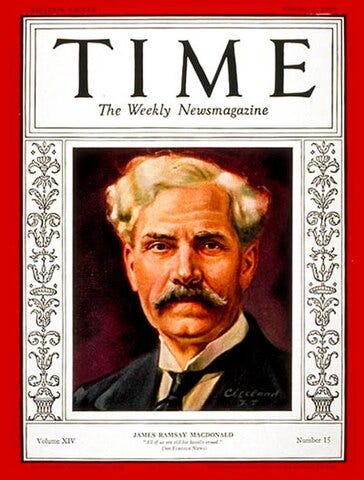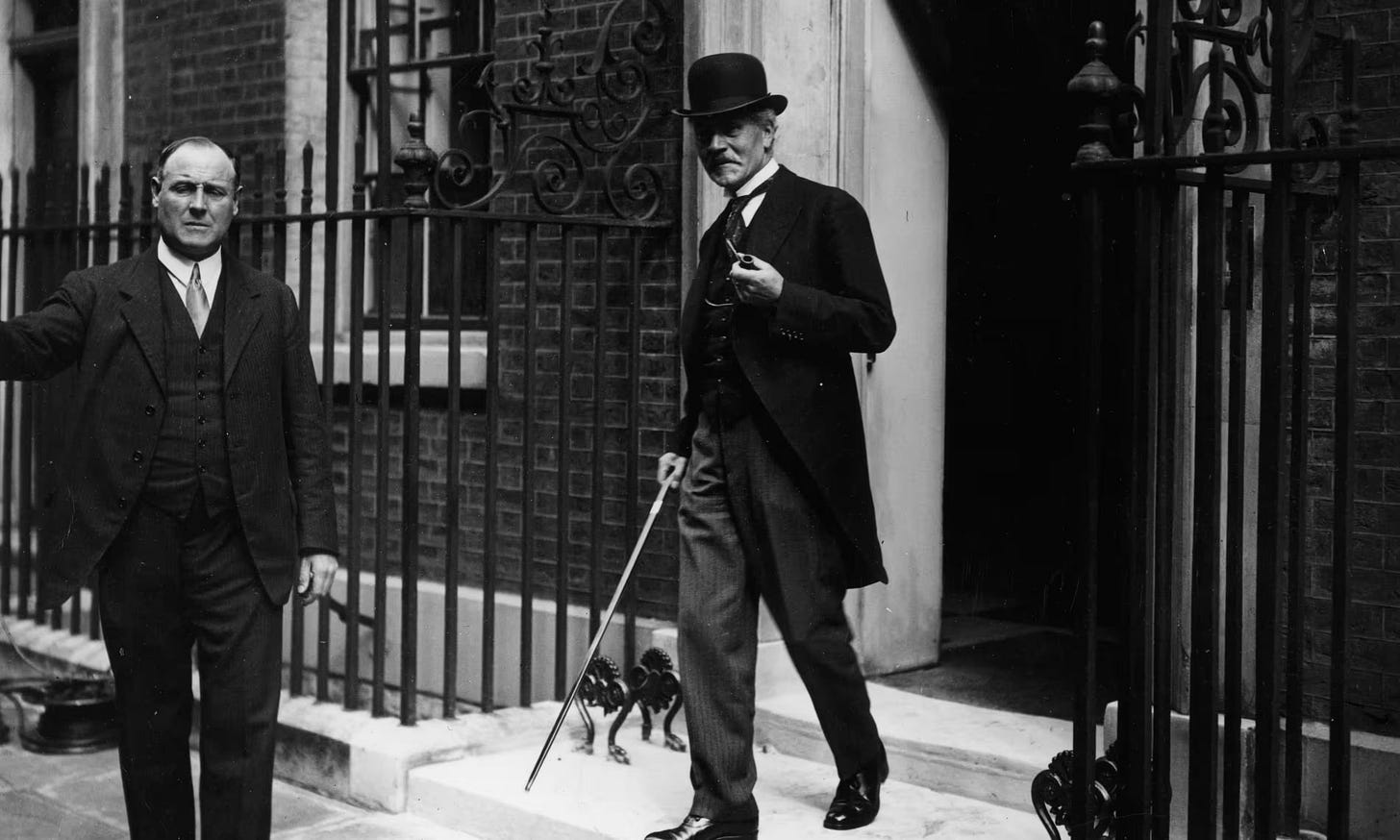As the UK went to the polls last week and elected a new government, much has been made about the size of the Labour Party’s victory on Thursday. With Keir Starmer’s party winning a 174-seat majority in the House of Commons, the fourth-largest in British history, talk of a supermajority has been a regular feature of the media commentary. Whilst a supermajority – a term borrowed from US politics – has no constitutional role in British parliamentary politics (with a simple majority of 326 seats necessary to form a majority government or pass legislation), the size of Labour’s victory is historic.
But by comparison, the 1931 General Election makes Thursday’s victory look like a close race. That election, which produced a majority of 492 for the National Government of Ramsay MacDonald, was filled with drama, disorder and the dissolution of the pre-1930s political order. To understand what brought about this result, we must first understand the political environment of the period – starting with the Great Depression of 1929.
The global economic turmoil caused by the Great Depression had a profound impact on Britain, with the country plagued by mass unemployment, economic hardship and soaring poverty. Economic concerns dominated the party manifestos of the 1929 General Election, which brought the Labour Party – led by Prime Minister Ramsay MacDonald – to power in a minority government, with Labour pledging to tackle the economic crisis through social welfare spending and public infrastructure works.
Under MacDonald’s government, the economic crisis deepened over the next few years, with the unemployment rate soaring to over 20% by 1931. The government’s failure to restore economic stability and bring unemployment under control led to a split in the Labour Party, with two factions emerging.
MacDonald and his Chancellor, Philip Snowden, both believed that spending cuts and tax increases were necessary to balance the budget – in essence, economic orthodoxy. On the other hand, many left-wing and trade union-aligned members of the Labour Party strongly opposed these cuts and favoured continued state intervention to protect those most vulnerable to the economic carnage.
A report by an economic committee led by Sir George May, a prominent city businessman, in Summer 1931 warned that Britain faced a £120 million gap in its public finances – which only strengthened the calls for austerity.
Facing a rebellion in his own party and a minority in Parliament, with Labour relying on support from David Lloyd George’s Liberals to pass legislation, MacDonald began looking for support elsewhere and met leading Conservative figures Stanley Baldwin and Neville Chamberlain. Following intense discussions, in August 1931 MacDonald took the radical step of forming a National Government to carry out his austerity policies, which included members of the Conservatives and Liberals.
MacDonald’s own party saw this move as a betrayal of core Labour values, expelling him and his supporters from the party. The former leader of the Labour Party and the first ever Labour prime minister was now alienated from his former allies and left leading a government pieced together with his previous opponents.
From austerity to election
With MacDonald and Snowden now under the newly formed National Labour Organisation (from which they led the National Government), they looked ahead to instituting their economic policies – albeit aware that a fresh mandate was required. With the National Government now dominated by Conservatives and facing fierce opposition from the Labour Party, MacDonald soon called a general election and hoped the British public would back his plan for economic stability.
The 1931 General Election was dominated by the economy, with all major parties putting their solution to the Great Depression front and centre of the campaign. Whilst the National Government made their case for austerity and spending cuts, the Labour Party, now led by Arthur Henderson, argued for continued welfare spending.

But Henderson and the Labour Party were facing an uphill struggle. Their failure to tackle the economic situation post-1929 and the defection of their former leader put them in a tight position, with their chances of victory looking slim.
The British public went to the ballot box on 27 October 1931 and the result was a landslide victory for the National Government. Stanley Baldwin’s Conservatives won 470 seats, with the National Government as a whole taking 554 out of 615 seats. Meanwhile, the Labour Party were completely wiped out – losing 80% of their seats and becoming the official opposition with only 52 MPs. MacDonald would remain as prime minister and lead the National Government into a new Parliament, albeit under a coalition controlled by the Conservatives. The Liberals also struggled, with the party splintering into three competing factions.
The scale of this electoral victory would reflect strong public support for the National Government’s austerity policies and provide them with a mandate to push ahead with their economic vision, but it would also have a long-term impact on British politics. The 1931 General Election would signify a period of extended Conservative political dominance, lasting until 1945, and within a few years usher in Neville Chamberlain to Downing Street and Britain’s policy of appeasement.
Likewise, it would also leave the Labour Party and the Liberals stranded in the political wilderness. The Labour Party would spend a generation in opposition before getting an opportunity to lead the country again – giving the party the chance to unify around a common cause of welfare intervention and an internationalist foreign policy. This would be crucial for the post-1945 era, when the Labour Party would again return to Downing Street.
For the Liberals, the result was equally devastating, leaving the party split between the pro-free trade ‘classic liberals’ and those who accepted a need for government intervention in the economy. The Liberals, who were increasingly seen as irrelevant in the years before 1931, had now seemingly lost all their political influence.
The supermajority of 1931 would significantly shape the future of British politics, entrenching the Conservatives in power until the end of the Second World War. It would also decide the economic approach Britain was to take towards the Great Depression in the years to come, with prolonged and continued economic troubles shaping the post-war development of the welfare state that was to follow.
It is perhaps too early to tell whether the 2024 General Election will have such a striking impact on the balance of political power today. But if the 1931 General Election is anything to go by, such an enormous victory may well shift the political landscape in unexpected ways.




